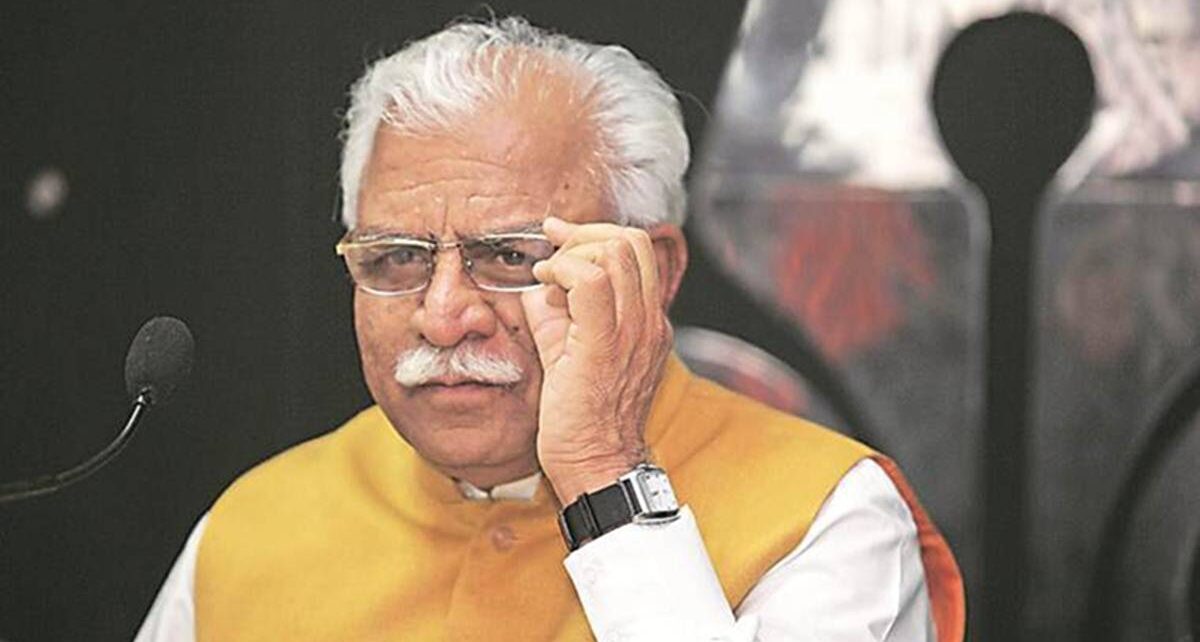The BJP-led government in Haryana will bring in a bill against religious conversions carried out through force, allurement or fraudulent means, with a provision for declaring marriages solemnised by concealment of religion null and void, in the upcoming budget session of the Assembly.
According to the draft bill, the burden of proof “lies on the accused”.A meeting of the Haryana Cabinet, chaired by Chief Minister Manohar Lal Khattar here, approved the draft of The Haryana Prevention of Unlawful Conversion of Religion Bill, 2022 on Tuesday.Several BJP-ruled states, including Uttar Pradesh, Madhya Pradesh and Gujarat, have such legislation against illegal conversion.The Bill will now be moved in the Haryana Assembly, whose budget session begins on March 2.In November 2020, state Home Minister Anil Vij had announced the setting up of a three-member committee to draft a bill against “love jihad”, a term used by BJP leaders to describe the alleged religious conversion of Hindu women in the guise of marriage.The Bill’s draft statement of objectives and reasons said that there were instances where, “to increase the strength of their religion”, people were marrying persons of other religion by concealment of their own religion and then forcing them to convert.The bill, therefore, seeks to prevent religious conversions which are effected through the use of force, under threat, misrepresentation, undue influence, coercion, allurement or by any fraudulent means or by marriage or for marriage by making it an offence.The provisions provide for declaring marriages, which were solemnised by concealment of religion, null and void.The Bill’s draft statement said the provisions provide greater punishment for such conversion in respect of the minor, women, Scheduled Castes and the Scheduled Tribes.Also, individuals converting from one religion to another have to submit to the prescribed authority a declaration.
The Bill’s draft statement of objectives and reasons read, “The Constitution confers on each individual the fundamental right to profess, practice and propagate his religion.“However, the individual right to freedom of conscience and religion cannot be extended to construe a collective right to proselytize; for the right to religious freedom belongs equally to the person converting and the individual sought to be converted”.”Still, there have been umpteen cases of religious conversions, both mass and individual. Obviously, such incidents have been hotly debated, more so in a multi-religious society, such as ours.“The presence of pseudo-social organisations with a hidden agenda to convert the vulnerable sections of other religions. There have been instances when gullible people have been converted by offering allurement or under undue influence. Some have been forced to convert to other religions,” said the bill’s draft, as per the official statement.The draft statement further read, “In recent past several instances came to the notice that with an agenda to increase strength of their own religion by getting people from other religions converted, people marry persons of other religion by either misrepresentation or concealment of their own religion and after getting married they force such other person to convert to their own religion. Recently Supreme Court also took judicial notice of such instances.”Such incidents not only infringe the freedom of religion of the persons so converted but also militate against the secular fabric of our society that conversion just for the purpose of marriage is unacceptable, it said.
“.. Provide that the burden of proof as to whether a conversion was not affected through misrepresentation, use of force, under threat, undue influence, coercion, allurement or by any fraudulent means or by marriage or for marriage for the purpose of carrying out conversion lies on the accused,” the draft bill read.“Provide that every individual converting from one religion to another shall submit to the prescribed authority a declaration that the conversion affected through was not misrepresentation, use of force, under threat, undue influence, coercion..,” it said.




